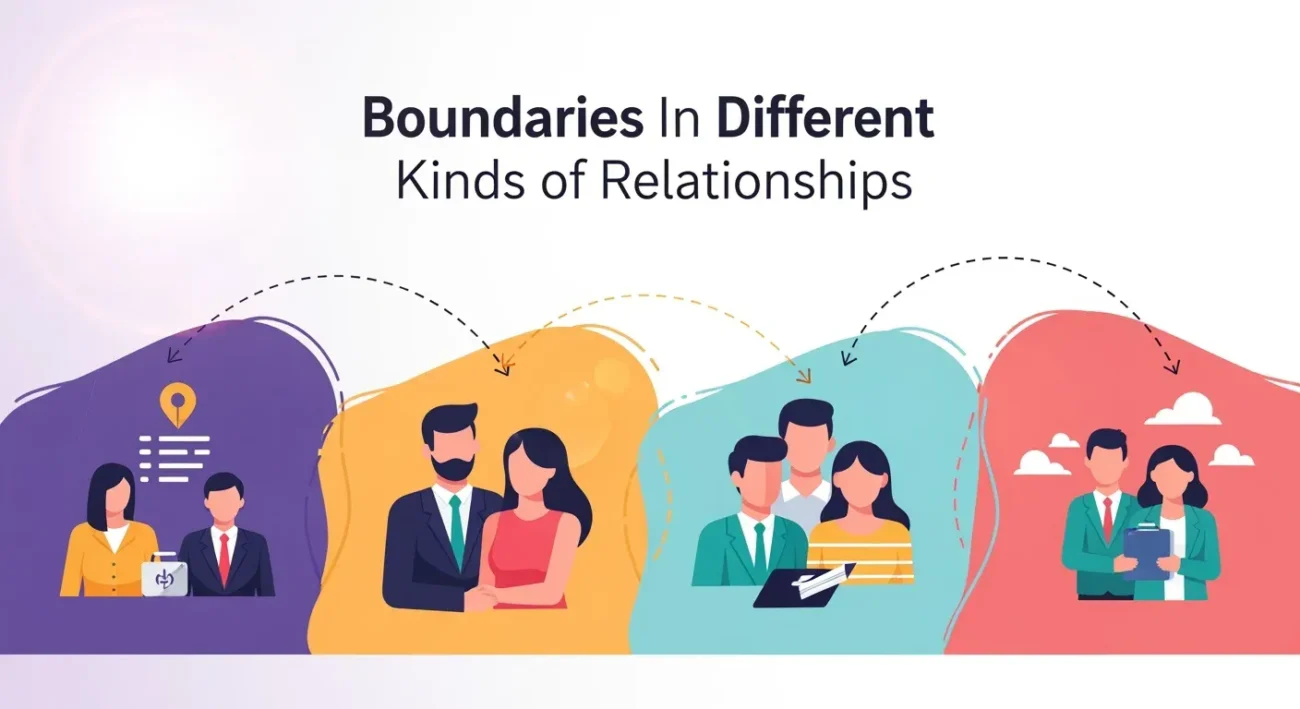How To Set Healthy Boundaries In Relationships

Have you ever felt drained, resentful, or that others are taking more than they give without really meaning to, Maybe you kept saying yes when you wanted to say no, or you felt guilty for putting your needs first. That’s a sign you might be missing healthy boundaries in your relationships. I’ll walk you through what healthy boundaries are, why they’re crucial, and concrete steps to begin and maintain them. I’ll also share real-life examples, common mistakes, and how to handle pushback. If you follow this guide, you’ll be able to build relationships that feel respectful, safe, and balanced.
What Are Healthy Boundaries?
Boundaries are personal limits that help define what you accept, what you don’t, and what you need from others to feel safe, respected, and well. They’re not walls; they’re guides for how you want others to treat you and how you want to treat yourself.
Boundaries can be physical (your space, your body), emotional (what you share, how intensely), mental (opinions, values), time (how much time you give), sexual, material/financial, social media or digital, even spiritual or cultural. Every relationship comes with its own mix.
Important of Boundaries
Setting healthy boundaries in relationships matters because:
- You preserve your identity and values. Without boundaries, you can lose sight of what you need and what matters to you.
- You reduce resentment and burnout. When you overgive or tolerate what makes you uncomfortable, those feelings build up.
- You improve communication. Clear expectations mean fewer misunderstandings.
- You foster trust and respect. Others understand you better when you make your limits known.
- You grow more self-confidence. Saying “no” or expressing needs is hard at first, but it builds your courage and self-worth.
Common Misconceptions and Obstacles
Thinking Boundaries Are Selfish
Many people believe putting themselves first is selfish. It’s not. Boundaries are about self-care, preserving your health, not shutting others out.
Fear of Conflict or Rejection
You might worry that others will be angry, hurt, or leave you. Sometimes they may, but often they’ll appreciate your honesty and even if they don’t, staying in a relationship that doesn’t respect you is worse in the long term.
Confused About What You Need
It’s hard to set boundaries when you’re not sure what you want. Sometimes we follow patterns from family or past relationships without realizing they don’t feel right.
Guilt, Shame, or Cultural/Family Pressure
You might have grown up hearing “you must always help,” or “don’t upset elders,” or “don’t question.” These pressures can make boundary setting feel like betrayal.
Steps For Healthy Boundaries In Relationships
Here’s a step-by-step guide you can follow. Try them at your own pace.
Reflect on Your Values and Limits
Spend time thinking (or journaling, or discussing with someone you trust) about:
- What makes you feel safe or unsafe, respected or disrespected.
- Which situations or behaviors leave you upset, drained, or angry frequently.
- What your non-negotiables are (e.g., honesty, respect, privacy).
- What your softer boundaries are (things you’d like but can be somewhat flexible about).
Notice Physical and Emotional Cues
Body and emotions tell you things. Maybe you feel tightness in your chest when someone crosses a line, exhaustion after certain conversations, or relief when you take space. Those cues are guides showing you where a boundary might be needed.
Choose the Right Time and Place to Talk
Pick a moment when both people are calm. Avoid trying to set heavy boundaries in the middle of an argument. Maybe schedule a chat: “Can we talk about something important later today?” gives space to think first.
Practice and Adjust
Setting boundaries is skill-building. It often feels awkward at first. That’s okay.
- Start small (with less scary boundaries).
- Notice what works and what doesn’t.
- Modify your wording if needed.
- Be consistent that builds respect for your bottom lines.
Boundaries In Different Kinds of Relationships

With Romantic Partners
You might need:
- Clear agreements on alone time vs time together (so neither feels neglected or smothered).
- Agreement on how to handle conflict (no shouting, no name-calling).
- Respect for privacy (e.g. checking phones only with consent).
With Friends
You might want:
- Not to always drop your plans because your friend requests something at the last minute.
- Your friend to respect when you’re not in the mood to talk deeply or hang out.
With Family
You might need:
- Limits on unsolicited advice.
- Boundaries about family obligations (how often, how involved).
- Defining visitation, personal space, or how finances are discussed.
At Work
You may set:
- Clear work hours; no messages after hours.
- What tasks you’re responsible for and what you are not.
- How you prefer to receive feedback (tone, schedule, setting).
Dealing with Personal Feelings of Guilt or Shame
- Remind yourself boundaries are not rejection they’re protection.
- Talk to someone you trust or a counselor/therapist.
- Practice self-compassion (e.g. “It’s valid for me to have needs too”).
When Boundaries Need Updating
As life changes (new job, new partner, changing family dynamics, aging), your needs shift. What felt okay before may no longer be.
So periodically reflect, ask yourself: “Is this boundary serving me” If not, adjust.
How To Know Your Boundaries Are Working
You’ll see signs like:
- You feel more at peace / less resentful.
- Your relationships start to feel more balanced.
- You get clearer communication from others.
- Your energy and mental health improve.
- Others start respecting your limits (even when you restate them).
Also, some discomfort is okay learning boundaries is growth. But you shouldn’t feel constantly drained or anxious in the relationship.
Conclusion
Setting healthy boundaries in relationships isn’t always easy. It takes courage, honesty, and practice. But if you take small steps, stay consistent, and remember your needs matter, the benefits are huge. You’ll feel more respected, more in control of your life, more peaceful and your relationships will likely become more genuine and satisfying.
